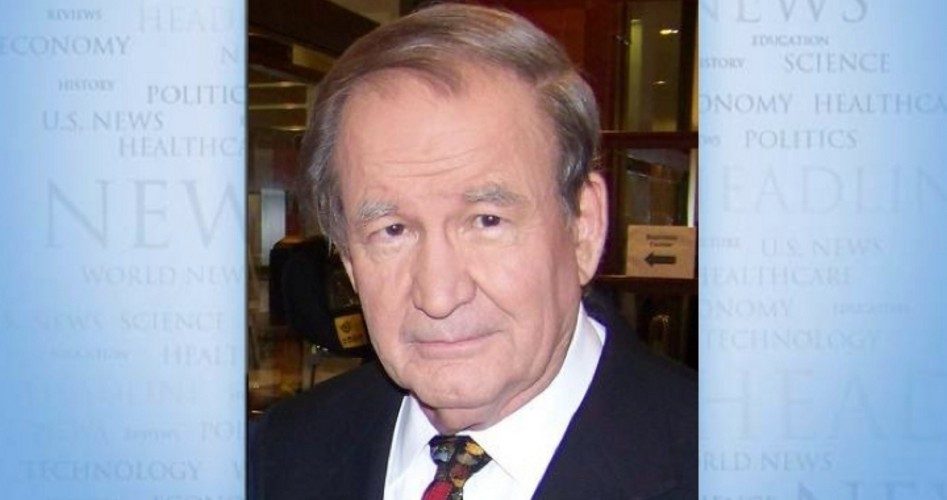
Asked bluntly by ABC’s George Stephanopoulos if he believes Russian President Vladimir Putin is “a killer,” Joe Biden answered, “Uh, I do.”
Biden added that he once told Putin to his face that he had “no soul.”
Biden also indicated that new sanctions would be imposed on Russia for the poisoning of dissident Alexei Navalny and for meddling in the 2020 U.S. election to allegedly help Donald Trump. Russia also faces U.S. sanctions for building the Nord Stream 2 pipeline under the Baltic to deliver natural gas to Germany.
With its president being called a “killer” by the U.S. president, Russia called Ambassador Anatoly Antonov home “for consultations.” In other times, such an exchange would bring the two nations to the brink of war.
What is Biden doing? Do we not have enough enemies? Does he not have enough problems on his plate?
The May 1 deadline for full withdrawal of U.S. troops from Afghanistan, negotiated a year ago with the Taliban, is just six weeks off. Do we stay and soldier on or depart? No decision has been announced.
If we stay, our forces in Afghanistan could, again, come under fire. If we leave, the Kabul regime could be shaken to its foundation and fall.
Leaving would be an admission that the U.S. failed, and the war is lost.
After the recent U.S.-South Korea military exercises, North Korean dictator Kim Jong Un’s sister issued this threat to the Biden administration:
“We take this opportunity to warn the new U.S. administration trying hard to give off powdered smell in our land (that) if it wants to sleep in peace for the coming four years, it had better refrain from causing a stink at its first step.”
There is talk of new North Korean tests of missiles and nuclear weapons.
Secretary of State Antony Blinken said in Tokyo this week that the U.S. goal remains “the complete denuclearization of North Korea.” But Presidents Bush II, Obama and Trump all failed to achieve that goal.
With national elections in June, the clock is also running on the Tehran regime that negotiated the 2015 nuclear deal. Does Biden intend to sign on again, as he indicated in the campaign he would, or walk away?
Biden also faces a new crisis of his own making. His “compassionate” policy on illegal immigration has been rewarded with scores of thousands of children, teenagers and families crossing our Southern border to be granted temporary residence while their cases await hearings.
With the border disintegrating, one would think the Biden administration would not be looking around for other crises.
Yet, in Tokyo, on the eve of his meeting with the Chinese in Anchorage, Blinken was playing the hawk: “China uses coercion and aggression to systematically erode autonomy in Hong Kong, undercut democracy in Taiwan, abuse human rights in Xinjiang and Tibet, and assert maritime claims in the South China Sea that violate international law.… We will push back if necessary when China uses coercion or aggression to get its way.”
China has enacted a new law that authorizes its coast guard to use force to defend Chinese sovereignty. And among China’s claims to sovereign control are the Senkaku Islands in the East China Sea, claimed and controlled by Japan.
Blinken has warned the U.S. will fight to keep the Senkakus Japanese.
While in Tokyo, Blinken also denounced the generals’ coup in Myanmar, accusing Myanmar’s army of “attempting to overturn the results of a democratic election and … brutally repressing peaceful protesters.”
Former national security adviser to President Trump John Bolton has listed other areas where China is engaged in “unacceptable behavior.”
“A by-no-means-comprehensive list of Beijing’s transgressions that require U.S. attention would include: meddling, blatant and subtle, with U.S. public opinion; building military bases in the disputed South China Sea; menacing Taiwan, Vietnam and India; increasing strategic nuclear forces and egregious global cyberwarfare; empowering North Korea’s nuclear weapons program; concealing the origins of covid-19; stealing intellectual property and forcing technology transfers; and genocide against Uyghurs and the repression of Hong Kong.”
Perhaps the Anchorage talks can be extended to get all the items on Bolton’s agenda fully addressed.
Again, does not America have enough on her plate already?
Our national debt is now larger than our national economy. COVID-19 has killed half a million of us and is killing 1,000 a day more. We have a broken and bleeding Southern border being overrun with no end in sight.
Politically, our nation is divided as deeply as it was on the eve of the Civil War. We are caught up in a culture war, at the root of which is an irreconcilable conflict over whether America is a good and great country, perhaps the greatest — or a nation of whose history and founding we ought to be eternally ashamed.
If time is on America’s side in our cold wars with Russia, China, North Korea and Iran, is not the wiser policy to maneuver to avoid any new hot wars?
Patrick J. Buchanan is the author of Nixon’s White House Wars: The Battles That Made and Broke a President and Divided America Forever. To find out more about Patrick Buchanan and read features by other Creators writers and cartoonists, visit the Creators website at www.creators.com.
COPYRIGHT 2021 CREATORS.COM




